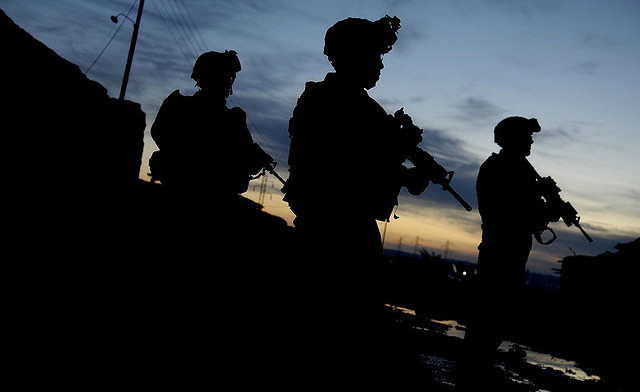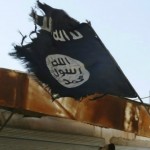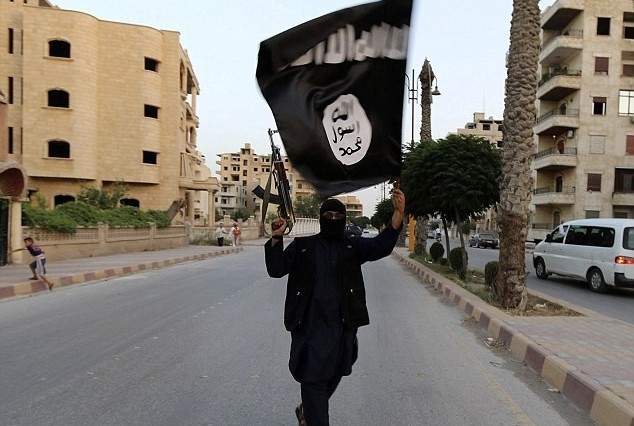by Wayne White
With the conflict in Iraq yet again dominating news headlines, it might come as a surprise to many Americans that it was Iraqi Prime Minister Nouri al-Maliki and his cronies who wanted all US troops out of Iraq by the original deadline, set by the Bush administration, of December 2011. Two administrations failed to change Maliki’s mind, but a cottage industry continues to insist that the Obama administration undercut US interests by not working hard enough to leave troops behind to preserve the US “victory.” The fact is, however, that Maliki and many other Iraqis were not going to back down for various reasons.
No Choice
A key premise of misleading accounts of the US departure from Iraq is that President Barack Obama wanted to end the US mission there. He sure did, along with the majority of Americans at the time. Yet this fact is irrelevant to the issue at hand. On the advice of his advisors, Obama still tried to persuade Maliki to overturn his refusal to grant the immunity required to keep US troops in Iraq with the US-Iraqi Status of Forces Agreement (SOFA), which expired in December 2011. Those marketing the old saw that Obama threw away alleged US successes in Iraq by simply not pressing Maliki hard enough do not acknowledge the reality that Maliki was unrelenting.
Maliki’s uncompromising attitude was clear since the time of the Bush administration. His position was meanwhile overwhelmingly supported by much of the Iraqi leadership, populace, and religious authorities. Fierce Shi’a nationalists like Muqtada al-Sadr wanted US forces out before 2011. Grand Ayatollah Ali al-Sistani, the source of emulation for Iraqi Shi’a, ceased to oppose the SOFA only when immunity was removed and 2011 was set as the withdrawal deadline.
Nearly half the Iraqi parliament also either opposed or abstained in the vote on the existing SOFA even with immunity removed because of pressure for a pre-2011 withdrawal. Finally, a majority of Iraqis polled at the time believed that either the presence of US troops was causing the violence, that Iraqi “sovereignty” would not be complete until the Americans left, or both.
Wishful Thinking
The notion of American “victory” in Iraq is also highly questionable. The US accepted a deal with Sunni Arab insurgents in which they stopped fighting US forces and also teamed up to hammer al-Qaeda in Iraq (AQI), especially during 2007-08 (the Iraqi Sunni Arab “Awakening”). Violence did plummet. Yet the levels of violence were still quite high, and crime was rampant.
From my perspective, having covered the first two years of the war from within the US Intelligence community, the fighting overall probably killed 150,000-200,000 Iraqis, and wounded hundreds of thousands more. Untold thousands of Iraqis also died from lack of medical attention or severe shortages of medicine for everything from the treatment of diabetes to chemotherapy. Millions of Iraqis saw no “victory.” After massive looting broke out in 2003, US forces also did little to stop the destruction (despite US obligations as an occupying power) of a vast amount of Iraqi civil infrastructure including government buildings, power generation capacity, hospitals, clinics, industries, schools, and universities. Meanwhile a huge shortage of doctors, nurses, and professionals developed as they fled the war. Iraq’s large Christian community was also devastated, and is now far smaller.
The Awakening also failed to endure. After all, from the outset, it was intensely unpopular among Iraq’s new Shi’a-dominated ruling elite. Sunni Arab Insurgents first offered it up in mid-2004, when tens of thousands of Iraqis and Americans yet to be lost or maimed could have been spared. Nonetheless, Shi’a Iraqi Interim Prime Minister Iyad Allawi rejected it. The Bush administration would not muster the courage to accept it separately until late 2006 after the situation in Iraq deteriorated into a bloody sectarian conflict.
The fundamental flaw in the deal was that it was only between Sunni Arab insurgents and US forces—not the Iraqi government. Maliki had taken over as prime minister; he bitterly opposed the deal. He even tried to scuttle it by sending the Iraqi Army to attack a large unit of former Sunni Arab insurgents working with US forces near Baghdad. In that instance, in late 2008, US soldiers shielding their new Sunni Arab allies prevented a bloodbath. Only after failing to scuttle the deal did Maliki accept it, under US pressure, though still not entirely.
Many US observers wrongly assumed the matter was closed. The Maliki government was, however, simply biding its time, waiting for US troops to leave so the deal could be undermined. Thus a desire to tear down much of the Awakening was another reason Iraqi-Shi’a powerbrokers wanted US troops out of the country. Maliki knew that as long as US troops remained on the scene, he would not have a free hand in dealing with the Awakening. To Shi’a leaders, Awakening cadres were still former insurgents. Sunni Arab reintegration also meant the return of greater (and unwanted) Sunni Arab political clout.
Starting in 2009, with the scheduled US withdrawal from cities, Maliki began to renege on his unwanted buy-in related to the Awakening. Security units loyal mainly to him and Shi’a militias began widespread arrests or assassinations of prominent Awakening members. In parallel, Maliki based his re-election campaign in 2010 on an anti-Sunni Arab platform, dredging up typically exaggerated Ba’th Party connections among Sunni Arab officials to rouse Shi’a voters.
From 2009-13, Maliki purged key Sunni Arabs from Iraqi ministries. Maliki’s anti-Sunni Arab campaign reached an extreme low in December 2011 when he charged Sunni Arab Deputy Prime Minister Tariq al-Hashimi with terrorism. Hashimi found refuge in Iraqi Kurdistan as the Kurds distanced themselves from Maliki’s damaging policies.
The Birth of Islamic State
The pushback from the Sunni Arab community was inevitable, though many Awakening members or associated tribes tried to persevere hoping for better times. In the years after 2010, AQI, previously on the ropes, bounced back dramatically. Its bombings against government and Shi’a targets spiked. Rising numbers of Sunni Arabs wanted revenge against the Maliki government for its exclusionary and punitive policies. Consequently, many Sunni Arabs otherwise opposed to AQI’s extremism either passively tolerated or actively supported its operations.
Yet Maliki still would not relent, and 2013 saw Sunni Arab protests across Anbar Province and other Sunni Arab regions, one of which security forces brutally attacked, killing 26 people. Many Sunni Arab Iraqis joined rebels fighting against Bashar al-Assad’s Alawite, pro-Iranian regime, drawing the two Sunni Arab causes closer. Moreover, as jihadist propaganda gained strength among Syrian rebels beginning in early 2012, it also rose in popularity among a number of Sunni Arab Iraqi fighters increasingly using Iraq as a sanctuary. Gradually, Islamic State (first know as ISIL, then ISIS and finally as IS) with roots in AQI, replaced that franchise.
It was just a matter of time before IS moved into Iraq. After Iraqi security forces generated intense Sunni Arab backlash by destroying a protest camp near Ramadi in December 2013, IS seized Fallujah and much of Ramadi. Government forces took back most of Ramadi, but not Fallujah where Sunni Arab tribesmen helped IS beat off counterattacks. The massive gains of IS this year are well known.
Back to Iraq
Now, as the US takes the field again, Maliki’s replacement, Prime Minister Haider al-Abadi, and his cronies have done precious little to politically weaken the self-styled Islamic State. The Iraqi government’s credibility, with many Maliki holdovers still in power, is low. Worse, it is resistant to fielding a credible second “Awakening”-style offer that could strip away some of IS’s Iraqi allies.
At the time of this writing, with more US troops being sent deeper into harm’s way to clean up Maliki’s mess, of which I warned about in August 2013, another Veterans Day dawns. Let’s hope as few US military personnel (and Iraqis) as possible join the nearly 37,000 American soldiers already killed or wounded in Iraq since the Bush administration’s flawed decision to invade Iraq in 2003.






Good post Mr White, tell it like it is, not like the revisionists want it. More of this type is needed to offset the possibility that the Congressional change taking place in January will rush headlong into the cesspool that was created in the aftermath of invading Iraq in the first place. These changes have 2 years to prove they can restore the U.S. Economy/infrastructure/employment picture instead of racing to the bottom as has been the case.
Al Maliki has acted like all post-revolution leaders did since the french revolution: Eliminate systematically any person or group that could bring back the old regime.
Iran post-revolution saw a massive amounts of executions and most, if not all, of the Shah allies were either killed or left. That was not the case in Iraq. Because of the US presence, Al Maliki was prevented to pursue the same systematic elimination. He was hoping that when they leave, he will be able to.
When the US left, he found himself with a weak army, divided shia groups and kurdish opposition to his rule. He was not a powerful, ruthless and charismatic religious-political leader like Ayatallolah Khomeini.
He failed and the Sunnis still regretting Saddam Hossein re-emerged. Yet as they were weak and divided, they naively followed a more powerful military group using the Sunni sect as its banner in the hope they could take their revenge: ISIS
Unfortunately, while from the same sect, the Islamic State’s ideology clashed with theirs. Now the Sunnis insurgents are being massacred by ISIS the same ways the Syrians rebels are been massacred by ISIS.
In a way ISIS is doing the dirty job that Al Maliki and Bashar al Assad have not succeeded to do. When/if the ISIS will be defeated, the Iraqi Sunnis will have to be grateful to the Iraqi army and to the Kurds and not to themselves.
With the intrusion of the ISIS, the Iraqi Sunnis may have learned that it is better to find a compromise with a Shia lead government and a united army than with Sunni extremists groups like ISIS. Will they take the lesson?
And yet the yammering yappers, Lindsey Graham and Songbird McCain leading the way for the FOXxers, will incessantly mouth the lie about “Obama not trying hard enough” etc.
.
IMMUNITY for U.S. troops was the sticking point: Maliki ‘offered’ to sign a personally guaranteed by him alone agreement; but the Parliament, like it or not a democratically elected legislature, would not allow it, therefore a deal-breaker.
.
Despite f-a-c-t-s being apparent and available, the Screaming Mimi wing of the Greatly Opposed to Peace party continue to package, sell and endlessly repeat their illogically but apparently fairly widely believed distortion of reality.
.
Love ’em or hate ’em, the Republican’t attacks, lies and ugliness continue unabated in an organized fashion. Democrats and Independents, et al., have yet to find an effective parallel mechanism (truth-based, in contrast to the Genetically Opposed to Progressivity party) through which to convey their message.
.
Maybe truth and facts are harder to sell; maybe fear sells and people want to buy some. Finding the right packaging and slogans and marketing …FOX fills a void that it helped create. Rupert must be so proud of his creation and emulators and the billion$ that his brand of toilet-talk spawned. Lush Rimjob must be proud of the lemmings who drool and swoon over his every disjointed pronouncement. Glen Peckerwood must exult in the minions who exult in his every lowbrow scatology/rant. The list is long. The facts are short. So is Time.
Leon Panetta would disagree with your assertion. If Obama pressed hard enough, he could have gotten it done. This is the reality.
I’m sure that Iraq was a fun place to be we invaded it, but it’s been Hell for over a decsde, with one weak but vengeful leader succeeding another. Perhaps a Bush or McCain or Palin or Cheney or Romney would’ve been eagerly funneling tens of thousands of soldiers back into Iraq. Perhaps. Maliki was offering ‘his word’ that an agreement was possible, but Parliament and Iraqis were against it. ‘His word’ is/was not enough.
.
At what point does the U.S. examine its hypocrisy about spreading democracy? When/how does Anerica ignore the will of the Iraqi governnent and its people in this situation that the U S. created, and still ‘honor’ the democracy that it claims is best for the world.
.
Screw Panetta. He sold some books and dishonorably crapped on Obama. But get this: after 10 years of war, I’D want the U.S. o-u-t, too, if I were an Iraqi, because evidently the idea of democracy doesn’t seem too damned palatable amidst the rubble and 200,000+ dead citizens
.